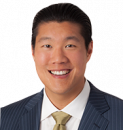What Embracing The Value-Based Care Mindset Can Do For End-Of-Life Patient Needs

Death is never easy. No matter what age. Not when it is sudden. Not when it is expected. When Dr. Ezekiel (Zeke) Emanuel got personal about death in The Atlantic (“My 92-Year-Old Father Didn’t Need More Medical Care”), his story jarred me. The story also reinforced the need to change the incentives of fee-for-service and tackle deep flaws in how we select and train doctors.
Dr. Emanuel is a well-known figure, with famous siblings to boot. I know him personally, and deeply respect him. We met when he was helping to design the Affordable Care Act, and he highlighted some of the things we were doing at ChenMed when he wrote, “Prescription for the Future: The Twelve Transformational Practices of Highly Effective Medical Organizations.” This is a man who is an expert (in health policy and medicine) and well-connected. He should not have a problem getting doctors to meet his ailing father’s needs.
The crux of the problem lies in the article’s subtitle: “Ordering up more tests and surgeries for dying patients are easy. Getting patients, the end-of-life care they deserve takes much more effort.”
For doctors, doing the former is easy, while doing the latter is hard. Doctors are trained to look after patients’ biology, not their interests. Research has demonstrated that a population’s health and risk for early death, however, is driven primarily by social circumstances and behavior. Medical care accounts for as little as 10-20 percent. I think the same principle applies at the individual level, yet our time is spent on the medical things we can memorize and quickly click buttons to place orders to assess – anatomy, symptoms, diagnoses, and prognoses. It is not spent on the things for which there is no shortcut: Learning about patients’ favorite foods, or their relationships with their children, or whether they have warm coats for cold winter weather – are all things that can impact their health. Knowing patients as individuals; caring for them as you would for loved ones is hard, time-consuming work.
Changing The Mindset
We can save others from experiencing what Dr. Emanuel and his family went through if we change selection and training processes in concert with embracing value-based care so that doctors have a reason to think more holistically about health.
The selection issue begins at the weeding out process for doctors. Who are we favoring? Those with the strongest relationship and emotional skills, or those with the strongest technical skills? You can’t be a doctor without technical skills, but, by selecting medical students based on making it through organic chemistry with an A, their MCAT® scores, and a demonstrated ability in rote memorization, we may be disqualifying the very people who would make the best doctors.
And what about the training doctors go through? Value-based care allows doctors to think more broadly, to do the right thing versus the easy thing at end-of-life. But, to be successful, even the smart people who become doctors need a system that helps them master the required skills.
Doctors are lucky if they get one class on end-of-life. I, on the other hand, took a “death and dying” class five times because I kept trading medical ward rounds for ICU rounds. I was lucky to have a phenomenal teacher in Harvard, ethicist and physician, Lachlan Forrow, MD. His class, and my ICU time, exposed me to so many end-of-life situations in my formative training years, I became comfortable with the process. I also was exposed to what the typical training looks like: Watching the attending doctor talk to a family. Some two decades later, I still remember a neurosurgeon telling a family their mother was going to die from the stray bullet wound she sustained by simply and dispassionately telling the family the facts. The juxtaposition of training methods was stark.
I realized that much of what we teach is wrong. The solutions don’t all lie in tests and procedures, then simply reporting the news of the outcome. It’s okay to talk, feel, hug, and pray with families who are open to it. We are not stronger as doctors by being unemotional. We are stronger, and help families make better decisions, when we connect as human beings going through pain.
Perhaps the words, “help patients and their family navigate through a complex, scary, and sometimes painful dying process” should be part of the medical school course curriculum and job description for physicians. At ChenMed, we focus on our physician training programs because, if we can’t develop well-rounded doctors, they’ll be marginalized as a technical resource rather than the leaders of healthcare from conception to grave.
Final Thoughts
Dr. Emanuel’s story is a reminder that we must do better and can do better if we give doctors a chance. Let’s move to value-based care so they can embrace a holistic view of the person instead of only his or her biology. Let’s select talent into the medical field thinking about a broader set of skills and motivations, and let’s equip doctors with real training on how to handle the toughest of conversations.




